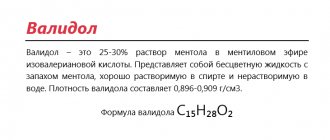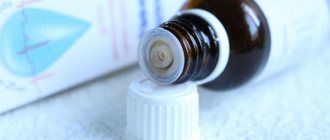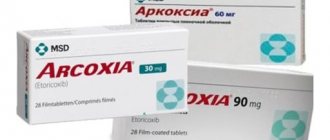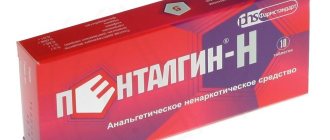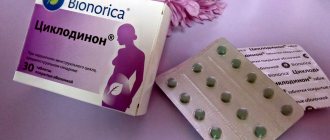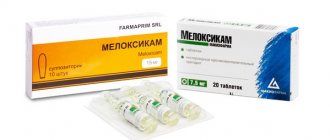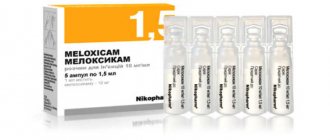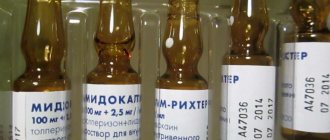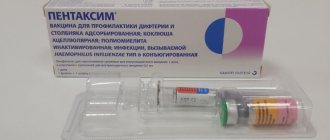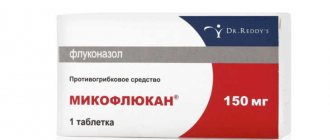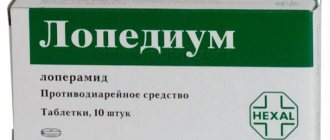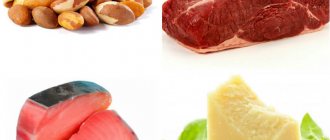Diseases of the cardiovascular system are in first place in terms of the number of deaths.
There are three reasons here:
- The key is the lack of attention to one’s own health. This is especially typical for the post-Soviet space with a low level of medical culture among the population.
- The second is the low-symptomatic nature of the pathologies, which does not allow for a timely response.
- The third is the unqualified actions of doctors or the inattention of the patient himself. This reason concerns poor-quality first aid and improper use of medications.
The further development of the pathological process and the prospects for recovery depend on qualified measures.
Nitroglycerin is a means of initial, emergency care for diseases of the cardiovascular system. It is mainly considered as a pharmaceutical drug for heart pain to relieve discomfort, which is only true to some extent. In fact, the clinical effect is much broader.
It is strictly forbidden to use the product without the recommendation of a treating specialist, because there are many nuances: contraindications, precautions.
Composition and release forms
The drug exists in several forms. Each is used in a certain group of clinical situations; the question is not so obvious at first glance; it is impossible to draw conclusions when reading the instructions. This point should be considered in more detail.
- Solutions. On water, oil and alcohol. The first is used for injection, so it makes sense to prescribe it in urgent cases.
It operates for a short period of time, ideal for providing emergency assistance on site or in the intensive care unit during intensive care.
- Tablets and capsules. There are forms with a short action and a prolonged effect that lasts for many hours. The choice depends on the goals of therapy.
Nitroglycerin is not always prescribed to relieve an emergency condition.
It can be taken over a long period of time, as part of the treatment of dysfunctional disorders, coronary heart disease, and during the rehabilitation period after a heart attack.
- Patch. It also has a long-lasting effect on the body.
- Ointment. Used relatively rarely. Almost never for cardiovascular diseases, because this form has a local effect.
Strictly speaking, Nitroglycerin is used not only in the treatment of heart and vascular diseases. But also with some other abnormalities in the functioning of the body (see below).
- Aerosol.
The specific form of release depends on the needs and goals of the therapeutic course.
Short-acting products are good for emergency use.
The prolonged type is widely used in the treatment of chronic disorders, within the framework of many months of use.
As for the composition, the name refers to organic nitrates. As the name of the group of compounds suggests, these are nitrogen-based substances. In this case, its oxide.
The pharmacological effect is to relax and dilate blood vessels, mainly veins, thereby normalizing local blood flow. The quality of respiration and cellular nutrition directly depends on this.
special instructions
Glycerin is an organic compound from the class of polyhydric alcohols. It has three hydroxyl groups, so it belongs to triols (trihydric alcohols). This simplest representative of the group is widely distributed in nature in the form of glycerides or acylglycerols - esters with a base of organic or mineral acids. Glycerides are found in oils and fats, for example, sources of glycerol trioleate include corn, peanut, sunflower, soybean and olive oils.
Technical glycerin is obtained as a by-product during the saponification of edible fats. To obtain glycerol and soap, saponification reactions of glycerol ester of stearic acid (tristearate) with alkali, sodium hydroxide, and ammonia are used. In industry, the synthetic chlorohydrin method is sometimes used, a method of oxidizing propene to propenal. Other production options are starch hydrolysis and glycol fermentation of sugars.
Pure glycerin is odorless, tastes sweet, absorbs moisture from the air, and is highly soluble in water with the release of heat. Alcohol dissolves in other alcohols, ethers, chloroform, and ammonia. It reacts with most compounds to form metal esters and acylglycerols. As a result, glycerates, acid halides, trinitroglycerin, acrolein, dihydroxyacetone, and compounds with vitamins are formed.
- Fashion for women over 50 - 2019
- Pork ribs in the oven - delicious recipes with photos. Baked pork ribs in the oven
- Walnut oil - beneficial properties and contraindications. How to take walnut oil for health
In addition to medicine, glycerol is used in paint and varnish, electrical, radio engineering, tobacco, military, agricultural industries, and for blackening rubber. Glycerol monostearate is a food emulsifier that preserves the freshness of products. In cosmetics, the substance acts as a preservative, a vehicle for delivering active components internally. In everyday life, glycerol can be used to remove stains, polish furniture, and care for leather shoes. It is used to start a fire, added to soap bubbles, and hookah tobacco.
Indications for use and dosage
There are many reasons for the use of Nitroglycerin, which determines its widespread use in the practice of cardiologists and specialists in some other profiles.
- Angina pectoris. A type of coronary insufficiency when blood flows to the heart in a small volume due to stenosis (narrowing) of the arteries through which it moves. Nitroglycerin for angina is used in tablets in an amount of 1-2 with an interval of at least 10-20 minutes. Or 4-6 drops in solution. Injection is practiced only by doctors, so there is no point in knowing the dosage.
- Chronic heart failure. Allows you to partially normalize the trophism (nutrition) of tissues. Not suitable for long-term use, because clinical effectiveness is not always sufficient, but the risks of side effects remain high. The issue is decided at the discretion of the doctor. Form of application: tablets or capsules of prolonged action. It is enough to drink 1-2 tablets a day.
- Heart attack. If Nitroglycerin is almost always used for heart attacks, and helps well, for a heart attack the task is much more difficult, depending on the cause and form of tissue necrosis of the muscular organ, a complete ban on the use of nitrates is possible.
In some situations, this will provoke even greater tissue ischemia and rapid death of cardiomyocyte cells.
Use is permissible only with the permission of the treating specialist. Mainly in the form of an injection solution.
Patients take 1-2 tablets at their own risk. The scheme is approximately the same as for angina pectoris.
- Pulmonary edema, cardiac asthma attack. Used for emergency purposes. The maximum permissible number of tablets in this case is 3-4, drops - no more than 16. The volume of use depends on the condition of the patient, the pathological process that provoked the dangerous disorder.
There are other diseases that may warrant the use of the name.
The effect of Nitroglycerin occurs within 3-7 minutes, regardless of the form, which makes the drug flexible and versatile.
- Spasms of cerebral vessels. Including migraines, although this is not a direct indication. In this case, 1 tablet in the acute phase is enough to partially or completely restore the patient’s normal condition.
- Violation of uterine muscle tone. It can be extremely uncomfortable, so Nitroglycerin is used to relieve the unpleasant sensation. This is not an end in itself. You can act in this way in acute cases, but then you still need to consult a doctor to determine the cause of the deviation.
- Painful spasms of organs and structures of the excretory system: ureters, kidneys and others. As part of therapy or in the event that classical medications like Drotaverine, No-shpa and others similar in the group (antispasmodics) do not help.
- Irritable bowel syndrome, colitis. All conditions that provoke a spontaneous increase in the tone of the muscles of the digestive organs. It is used for a short time and only to correct discomfort.
- Asthmatic attack of non-cardiac origin. Due to an allergic reaction or infection. It makes sense to take the drug only in extreme cases, if the effect of glucocorticoids and bronchodilators is delayed or incomplete.
- Gallbladder problems. Including stagnation of secretions, the so-called cholestasis. Happens quite often.
In the described cases, when cardiac structures are not involved, it is difficult to name a universal or even approximate dosage. There are too many factors to consider. This is a strictly individual task.
Glycerin price
You can purchase Glycerin in pharmacies or on the Internet at a cost depending on the form of the medicine and the volume of the pack. In Moscow, approximate prices will be:
| Product type, volume | Internet cost, rubles | Pharmacy price, rubles |
| Liquid for topical use, 25 ml (Tver factory) | 20 | 25 |
| Liquid glycerin, 40 g (Samaramedprom) | 21 | 25 |
| Candles 2.11 g 10 pcs. | 140 | 150 |
| Children's candles 1.24 g 10 pcs. | 150 | 160 |
| Liquid, 25 g (Tula factory) | 7 | 10 |
How Nitroglycerin works for various conditions
Angina pectoris
Acute coronary syndrome, which causes a lot of discomfort without destruction of the muscular layer of the heart, which can be easily relieved with Nitroglycerin.
It is perhaps the main medicine for stopping the clinic and restoring the patient’s normal condition.
The pharmaceutical agent affects veins and small peripheral capillary vessels, but practically does not affect arteries.
Thanks to this paradoxical effect, nutrition and cellular respiration return to normal. The contraction frequency drops, but the pumping function does not suffer.
The effect of Nitroglycerin on the heart is to restore trophism (nutrition), blood flow, relieve pain, an attack of fear and shortness of breath.
Attention:
The medication does not affect the root cause of the disorder. You cannot do without consulting a cardiologist in the future. Treatment is required, not just relief from the main symptoms.
Myocardial infarction
Acute tissue necrosis affects the general condition of the patient. The risk of death increases in proportion to the time of inactivity.
It is based on a group of processes: narrowing of the coronary arteries, heart rhythm disturbances. It is these symptoms that Nitroglycerin relieves. Partially or completely depends on the aggressiveness of the process.
In addition, the drug reduces the need for oxygen in the muscle organ due to a complex biochemical mechanism.
Thus, Nitroglycerin helps relieve pain, shortness of breath, high blood pressure and other issues. However, all of the above is only partially true.
Some forms of heart attack, on the contrary, prevent the use of the drug. It is difficult to determine in advance what type of pathological process is taking place in a particular case without diagnosis.
For example, doctors do not recommend using the drug for extensive myocardial infarction. Therefore, the indication is quite controversial, there are risks.
Chronic heart failure
Accompanied by a decrease in the contractile, pumping function of the heart, which affects the condition of all organs and systems.
Because the amount of oxygen and nutrients supplied to the brain, kidneys and the muscle organ itself is small, and then reaches critically low values.
The basis of the pharmacological action in this case is the ability to reduce heart rate while formally maintaining or even increasing pumping function.
However, this is not the main effect of the medication. Glycosides cope with this task much better with significantly lower risks to health and life.
Nitroglycerin, in case of heart failure, reduces resistance in the capillary network and pressure in the pulmonary artery, which significantly reduces the risk of an emergency condition, irreversible organic disorders (the so-called cor pulmonale).
For this reason, it is impossible to call the medication useless as part of the treatment of the disease. This is wrong.
But the dosage must be carefully varied and adjusted if necessary. It is impossible to do this on your own. Need help from a cardiologist.
Read more about chronic heart failure here.
Pulmonary edema
In such a case, the medication is also ideal: Nitroglycerin will help reduce pressure in the pulmonary artery, normalize blood flow in the pulmonary circle, which in itself relieves swelling and stagnation.
However, in the case of a long-term emergency condition, things are not so simple. Urgent hospitalization may be required.
Diseases not mentioned above
They were partially touched upon earlier. If you get more specific, the list will look like this.
- Disruption of the gallbladder. Nitroglycerin relaxes the walls of the ducts that remove secretions, expanding them, which leads to rapid removal and relief of stagnation.
- Intestinal problems. Relieves pain and spasm, normalizes the discharge of contents. In some cases, it is much preferable to classical medications like Drotaverine.
- Asthma attacks. Not always and not in all cases. Relieves breathing problems, narrowing of the bronchial lumen, and promotes rapid mucus discharge.
- Pain in the uterine area during spasm is also eliminated through the use of medication. Can be used for dysmenorrhea and painful menstrual cycles. In agreement with the gynecologist.
- Damage to the kidneys, ureters, and other structures of the excretory system. Normalizes the patient's condition, removes discomfort and restores urine output.
- Brain problems. Relieving vasospasm of cerebral structures, which means normalizing cerebral blood flow and eliminating headaches and other neurological manifestations.
It is possible to use Nitroglycerin for tachycardia, but this is not a special indication; it is usually eliminated in parallel, as part of the treatment of the underlying condition, which provokes an increased heart rate.
What is Glycerin used for?
The product can be used in different ways. The instructions indicate the following indications:
- rectally (microenemas, suppositories) – constipation, anal fissures;
- orally – increased intracranial pressure, glaucoma, Reye's syndrome (acute hepatic encephalopathy);
- externally (applications) – softening excessively dry mucous membranes and skin;
- sodium tetraborate solution (borax) – candidiasis (thrush), tonsillitis (inflammation of the tonsils), pharyngitis (inflammation of the mucous membrane and lymphoid tissue of the pharynx), cough, treatment of bedsores affected by skin mycoses (fungal infections);
- in cosmetology – adding to moisturizing, toning and nourishing masks, serums, acne mixtures, cleansing and refreshing lotions, creams, shampoos, balms and hair masks, treatment of cracked heels, nail fungus, wrinkles.
Glycerol is a non-toxic substance, so it is used in the pharmaceutical industry: added to ointments, creams, pastes to prevent rapid drying and enhance antiseptic properties. The drug is found in tablets and suppositories. In addition to pharmacology, it can be used for preserving meat, wheat, red blood cells, and flowers.
In cosmetology, glycerin can be used only with sufficient air humidity. This way it absorbs moisture from there and retains it on the skin, forming a thin film that has a moisturizing effect. If the air is too dry (less than 65%), glycerol will attract water from the skin, which will lead to drying and flaking.
Contraindications
There are quite a lot of them, you need to strictly adhere to the list.
- Stably high or critical intracranial pressure. Confirmed by diagnostic methods.
- Glaucoma even during therapy. Because a rapid attack, death of the optic nerve and irreversible changes in vision are likely.
- Cardiac tamponade. Accumulation of fluid or blood in the pericardium (a special sac that encloses a muscle organ). Because the use of Nitroglycerin will inevitably provoke death as a result of cardiac arrest (asystole).
- Intoxication with metal salts and other poisons with the development of pulmonary edema.
- Cardiomyopathy. Thickening of the wall of cardiac structures. Relative contraindication. Depends on the nature of the process and its “neglect”. Read more about the types of cardiomyopathies and treatment methods in this article.
- Pericarditis. Inflammation of the already named bursa.
- A drop in blood pressure to critical levels (below 90-100 per 60, depends on individual characteristics and working blood pressure).
- The same applies to the frequency of contractions of a muscle organ. Severe bradycardia of clearly pathological origin is a contraindication.
- Nitroglycerin intolerance. Allergic reaction. It is relatively rare, but if it develops, the drug is discontinued and not used, replacing it with analogues. Unfortunately, you won't be able to identify the problem without trying. Therefore, they start with the minimum dosage, not counting emergency conditions.
- Polyvalent response to medications. Diagnosed even less frequently. Accompanied by an immune reaction, allergies to a group of drugs.
Attention:
In the main part of the described cases, with low blood pressure, critically low pulse, etc., the use will provoke death.
Therefore, nitrates should not be used without a doctor’s prescription and thorough diagnosis. Especially without knowing your own body and current diseases.
There are also so-called situations when use is acceptable, but not recommended. The standard medical rule applies: Nitroglycerin can be taken if the benefits outweigh the risks.
- Pregnancy.
- Breast-feeding.
- Age 75+.
- Acute disturbance of cerebral blood flow or chronic cerebral ischemia.
- Severe anemia.
- Kidney, liver failure.
- Marked intoxication.
Results of nitrglycerin overdose
An overdose of nitroglycerin is extremely dangerous. The patient has:
- a sharp drop in blood pressure;
- loss of consciousness;
- signs of respiratory failure;
- nausea;
- vomit.
If urgent measures are not taken, cardiac arrest is possible!
If such symptoms occur, you need to lower the head of the bed, provide access to oxygen, and administer the drug Phenylephrine and other vasoconstrictors to the patient.
It is recommended to carry out massive infusion therapy with saline solutions, dextrans, and use large doses of Prednisolone and Dexamethasone. A good effect can be obtained with intravenous administration of ascorbic acid and cardioprotectors.
Let's summarize
Nitroglycerin can quickly help with heart and some other problems, but is not considered a panacea. Because the effect is partial or absent altogether.
For this reason, and also due to the enormous risks, there is no talk of any unauthorized use. This is extremely dangerous. In all controversial cases, it is recommended to consult a cardiologist.
The only exceptions are emergency situations, when the issue is blunt and life is at stake. Then it makes sense to take a risk and take Nitroglycerin, but you still can’t do without calling an ambulance and transporting to a hospital.
Side effects
- Central nervous system: weakness; rarely – psychotic reactions, anxiety, disorientation, lethargy;
- Digestive system: dryness of the oral mucosa; rarely – vomiting, nausea, abdominal pain;
- Cardiovascular system: headache, dizziness, fever, tachycardia, low blood pressure; rarely (especially in case of overdose) - cyanosis, orthostatic collapse, increased symptoms of angina pectoris (paradoxical reaction to nitrates); sometimes - collapse with loss of consciousness and bradyarrhythmia;
- Local reactions: burning sensation under the tongue, skin hyperemia;
- Allergic reactions: rarely - itching, skin rash, exfoliative dermatitis;
- Other: rarely - hypothermia, blurred vision, methemoglobinemia.
"Nitrocore"
"Nitrocor" is a medicinal product containing the same active ingredients as nitroglycerin. That is why it also acts quickly, helping to relieve an attack of angina. "Nitrocor" can also be used as a prophylactic agent.
The main method of application is under the tongue. In addition to the main components, the medicine contains sugar, dextrose and starch. It is not recommended to constantly use the drug, as it is addictive. You can take short breaks, thanks to which the body will again perceive the remedy properly.
Drug interactions
When nitroglycerin is used simultaneously with certain medications, the following effects may occur:
- Vasodilators, antihypertensives, angiotensin-converting enzyme inhibitors, phosphodiesterase-5 inhibitors, slow calcium channel blockers, tricyclic antidepressants, ethanol, diuretics, beta-blockers, monoamine oxidase inhibitors, procainamide: increased hypotensive effect of nitroglycerin;
- Dihydroergotamine: an increase in its content in the blood and an increase in blood pressure;
- Heparin: decrease in its effectiveness;
- Acetylsalicylic acid: increasing the level of nitroglycerin in the blood and enhancing its effect.
"Isodinite"
This drug has a similar composition to nitroglycerin and has a similar effect on the body. The speed of action of the drug depends on the chosen form.
Despite the fact that nitroglycerin has a lot of analogues, it is this drug that has the most effective effect.
We looked at a drug such as Nitroglycerin. What it does, what its indications and contraindications are, what to replace it with - you also know. However, you should remember that self-medication can only worsen the situation. Be sure to consult your doctor before use. Be healthy!
